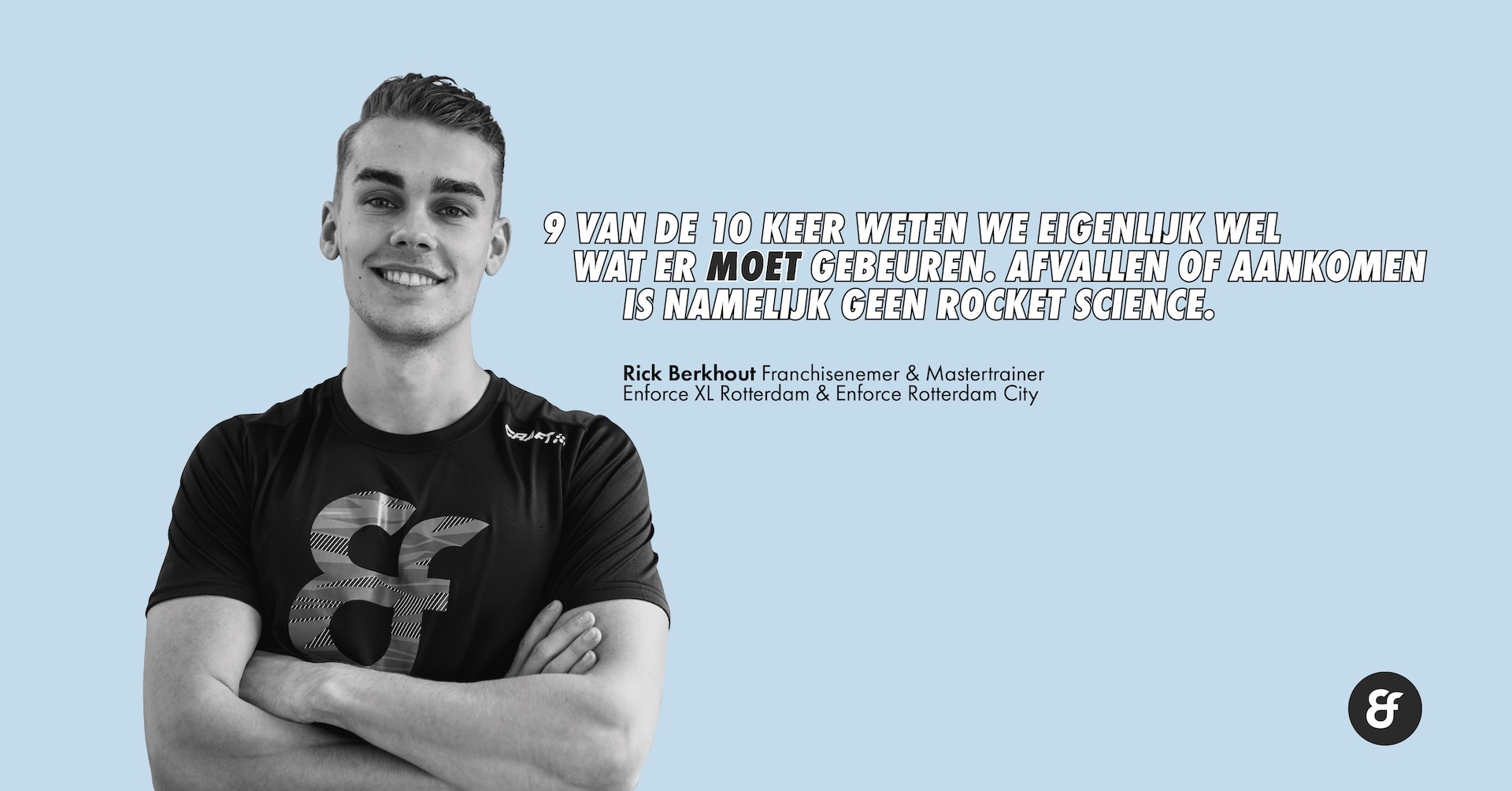Start exercising and eating healthier on January 1 and stop again on January 12. 94% of the 3.8 million Dutch people with good health intentions manage to achieve it every year. They stop before the result is achieved. In fact, they stop before any results have been achieved.
9 times out of 10 we actually know what needs to be done. Losing or gaining weight is not rocket science, you eat fewer or more calories than you burn in a day and suddenly the outcome is what you want it to be.
Many people claim that it takes 21 days to form a new habit. You think this is manageable. Yet you often need a little longer...
Where does that 21 days come from?
The 21-day theory stems from a study that actually had nothing to do with changing behavior. This research was about the experience of people who underwent plastic surgery. The participants in this study appeared to need an average of 21 days to get used to their new appearance after surgery.
How long does a lifestyle change take?
More recent research indicates that habit change in eating or exercise habits takes an average of 66 days. The researchers indicate that the length of that period clearly differs between individuals and types of habits. The research shows that 95% of people take between 18 and 254 days to learn a new habit.
Hardly anyone manages to lose weight and eat healthier
The habits that come with losing weight and eating healthier seem to be really persistent. Research shows that only about 10-20% of people successfully lose weight in the long term. In short, 80-90% people are unable to eat healthier and especially less, despite their intentions and good intentions. Almost all of them relapse. Successful weight loss therefore really requires an individual approach; so customization.
What do you do when you relapse?
So it is very normal to fall back into old habits. Especially if the new pattern is interrupted by, for example, a holiday, stress from work or your son or daughter who has become ill and you were unable to exercise for a week. Where many people go wrong is that they start to feel guilty when this happens and tell themselves that they are not good enough, that they are weak or that it is simply not for them. What you should actually do is put the facts on the table:
– Was this a conscious or unconscious choice?
– Could I have done something about it?
– Would I have wanted to do something about it?
If your answer is yes, you can simply decide to do it differently next time
If your answer is no, then all you have to do is accept that this was the case and get back into the good rhythm as quickly as possible.
Ultimately, learning a new habit depends on making agreements and being honest with yourself.
What you want to notice is that you always talk to yourself, and your brain prefers to maintain how it has always been. You are the only one who can decide with that devil on your shoulder to exercise or to pass up that bar of chocolate.
Some tips to put this into practice:
1: Think about what exactly you want to achieve. As concrete as possible.
2: Think about what you have to do to get here and don't think too hard. Start with the knowledge you already have.
3: Think about why this goal is so important to you and don't give up; because I want to be healthy. But keep asking; why is being healthy so important to me? What will that do to my quality of life?
4: Start, and accept that you will set back a few times. The trick is to make the gap between falling back and picking up again as small as possible.
5: Don't give up, you can do this!
Rick Berkhout
Enforce Franchisee & Master Trainer
rick@enforce.nl
Schedule a free coaching session or take the online membership test
Does this sound good and are you also ready for a fitter & healthier life? Then schedule a free coaching conversation now Join me or one of the other master trainers! 100% risk-free, the first step has never been easier!
Are you still in doubt? Then take the no-obligation online membership test: 6 short questions (only 1 minute to complete) to discover whether Enforce suits you!


